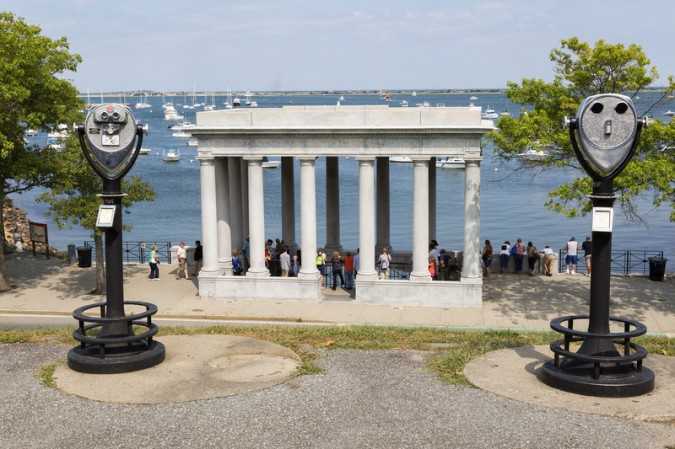
The rock is also said to symbolize the many localized wars. – And we would leave here, also, for the generations which are rising up rapidly to fill our places, some proof, that we have endeavored to transmit the great inheritance unimpaired that in our estimate of public principles, and private virtue in our veneration of religion and piety in our devotion to civil and religious liberty in our regard to whatever advances human knowledge, or improves human happiness, we are not altogether unworthy of our origin…" "We have come to this Rock, to record here our homage for our Pilgrim Fathers our sympathy in their sufferings our gratitude for their labours our admiration of their virtues our veneration for their piety and our attachment to those principles of civil and religious liberty, which they encountered the dangers of the ocean, the storms of heaven, the violence of savages, disease, exile, and famine, to enjoy and establish. Plymouth Rock is viewed as a symbol for many early settlers as it is said to represent both the virtues, and the flaws of the pilgrims. With this discovery, the Pilgrim Monument would then be created in Provincetown, instead of Plymouth, Multiple primary sources do not mention the Plymouth Rock as the actual landing spot, but that the true welcoming spot would be Provincetown, Cape Cod. With an attempt to transport the rock from its original location to the Plymouth Town Square in 1774, the rock split in half, now revealing a large crack. In 1741, Pilgrim, Elder Thomas Faunce labeled the "Great Rock" as the official landing spot for the Mayflower. While being founded in 1620, the first recorded writing about the rock was not until the year 1715. Plymouth Rock is the believed landing spot for the Pilgrims.

Plymouth Colony was founded in 1620 by Governor William Bradford and the Mayflower Pilgrims. Considered to be apart of Pilgrim Memorial State Park, the Plymouth Rock Memorial is currently up-kept by the Department of Conservation and Recreation for the Commonwealth of Massachusetts.

Located in downtown ocean-side Plymouth, Massachusetts, the Plymouth Rock Monument is a very well-known tourist attraction. Plymouth Rock is the said landing site for Mayflower and the Pilgrims aboard in 1620.


 0 kommentar(er)
0 kommentar(er)
